Top tips for helping children to become readers
Published on: 27 April 2023
Our Writer-in-Residence, SF Said, has spoken to expert teachers and leaders in education to find out what really works to help children discover a love of reading.

How do we help children become readers?
I’ve written about my own experiences in previous blogs, but I’ve also been interviewing some experts on the subject. So this week, I’m excited to share highlights and insights from my interviews with some inspirational teachers, and in a future blog, I’ll be hearing from some inspirational librarians.
Our experts:
- Sonia Thompson: Headteacher, St. Matthew’s CE Primary School. Follow Sonia on Twitter.
- Jon Biddle: Year 5/6 teacher, English lead and Reading for Pleasure advocate. Follow Jon on Twitter.
- Pie Corbett: Poet, teacher and creator of Talk4Writing. Follow Pie on Twitter.
- Farrah Serroukh: Research and Development Director at the Centre for Literacy in Primary Education (CLPE). Follow Farrah on Twitter.
- Teresa Cremin: Ex-teacher and now Professor of Education at the Open University. Follow Teresa on Twitter.
What are your top tips for helping children to become readers?
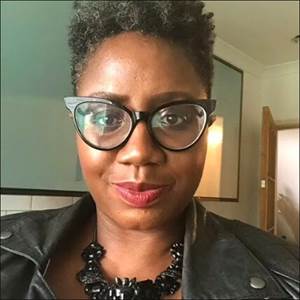
Sonia Thompson (pictured): Create a buzz about books. Make them irresistible. That means having teachers who read and know about books, so can make recommendations. Having a library (and a librarian). Sending books home. Adults reading aloud to children daily. Children having time in school to read independently and with their peers – time to talk about books. Reading time, free from having to write about or analyse what you have read.
Jon Biddle (pictured): Prioritise the timetable so that independent reading and storytime happens every day. Fight for it if necessary, because the impact it has is enormous. Try and keep a flow of books coming into the classroom. Use your School Library Service, local library service, ask parents to donate books that they no longer need, make friends with your Parent-Teacher Association and keep reinforcing the message to school leadership about the impact of Reading for Pleasure.
"All children deserve to meet themselves and others in the world of fiction, to find facts that fascinate, to experience the power of reading deeply."
Pie Corbett: Provide a good range of books and reading time. Read to them daily. Be a reader yourself so they know that it is something worth doing. Establish a system to spread recommendations. This could be a weekly slot for children to present and read from a loved book, as well as table displays set up by children of suggested books, using ‘post-it’ comments.
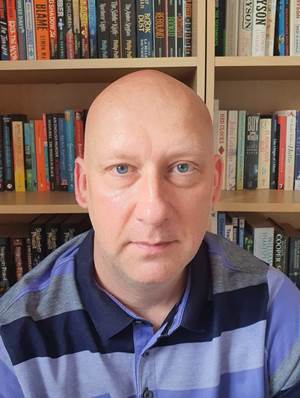 Farrah Serroukh: Children need access to a broad range of reading materials that channel their interests, pique their curiosity, and inspire them to want to read. Classroom stock should contain a range of text types, formats, genres, themes, subject matter, writing styles and casts. Such variety will not only entice them to want to read but will help them to appreciate the value and pleasure that reading can afford.
Farrah Serroukh: Children need access to a broad range of reading materials that channel their interests, pique their curiosity, and inspire them to want to read. Classroom stock should contain a range of text types, formats, genres, themes, subject matter, writing styles and casts. Such variety will not only entice them to want to read but will help them to appreciate the value and pleasure that reading can afford.
Teresa Cremin: Become a Reading Teacher. Build reading communities. Get to know your readers: their interests in life (not just in reading), their sense of self as a reader and attitudes to reading. Widen your text knowledge; we can never know enough. All children deserve to meet themselves and others in the world of fiction, to find facts that fascinate, to experience the power of reading deeply.
What do you feel are the biggest barriers that prevent children from becoming readers?
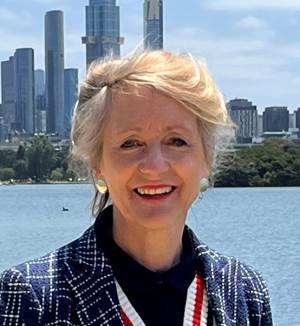 TC (pictured): They include money for texts; teachers and adults’ knowledge of diverse texts that tempt; the notion that reading is decoding only; the tendency of the education profession to reify what can be easily assessed; a lack of awareness of the potential of Reading for Pleasure and Reading for Pleasure as a social justice issue.
TC (pictured): They include money for texts; teachers and adults’ knowledge of diverse texts that tempt; the notion that reading is decoding only; the tendency of the education profession to reify what can be easily assessed; a lack of awareness of the potential of Reading for Pleasure and Reading for Pleasure as a social justice issue.
FS: Lack of access, time and opportunity to engage with high quality children's literature. Budgetary constraints. Scheduling time to share books, carving out opportunities for children to browse titles and creating space for children to get lost in story worlds and discuss their thoughts and feelings is no easy feat when juxtaposed with the wider demands on the school timetable.
JB: There’s continual pressure from the school timetable, which means that reading time and story time are often squeezed, mostly because the impact isn’t immediately visible. Access to books is a huge limiting factor. If parents can’t afford to purchase books, and school budgets don’t allow for new investment in stock, where do the new books come from?
PC: We need to remember that if we do not read to children in school then many will never have a story read to them. In some instances, a big barrier is not having access to books that they want to read such as comedy, quick reads, comics and graphic novels. These should all be available alongside those books that take the imagination into deep waters.
"We need to remember that if we do not read to children in school then many will never have a story read to them."
ST: A school that doesn’t have a strong culture around teaching children how to read and at the same time, enabling them to read for pleasure and with advocacy. Not having a Head Teacher / Senior Leadership Team driving Reading for Pleasure strategically. It has to be the norm and the Head Teacher sets the weather for that, including ensuring there is funding.
What can we as adults do to be good reading role models for children?
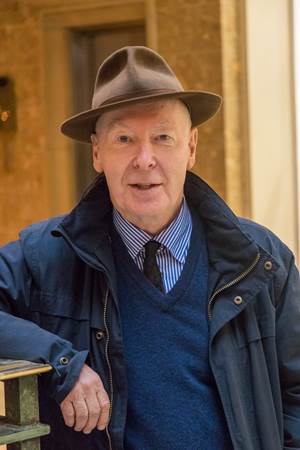 PC (pictured): Children learn how to behave mainly through imitation so the teacher as an enthusiastic reader is key. This needs to be visible and obvious – we should share our passion. Many schools hold weekly ‘reading assemblies’ where teachers and visitors share favourite books and talk about how reading is important to their work.
PC (pictured): Children learn how to behave mainly through imitation so the teacher as an enthusiastic reader is key. This needs to be visible and obvious – we should share our passion. Many schools hold weekly ‘reading assemblies’ where teachers and visitors share favourite books and talk about how reading is important to their work.
TC: We can reflect on what counts as reading. Do we have a schooled conception of reading that limits children’s understandings? Do we tie reading to book bands, guided reading, shared reading, reading comprehension, phonics practice, accelerated reading? As reading role models we can reflect on our own reading practices and what they can teach us.
ST: See our role as good reading role models as a social justice role. Particularly when we are in schools in areas of high disadvantage.
"Use reading time in class to read ourselves, don’t use it to tidy up a Geography display."
FS: Modelling not just the mechanics of how it’s done, but also the pleasure that can be derived and the power it can unleash. Do we think about how we might bring the book to life in our reading and performance of it? Do we select and share books that convey the breadth of emotions that literature can tap into and express this through our reading aloud, gasping at key moments or laughing out loud in others?
JB: Show how much reading matters to us. Talk about books, talk about our lives as readers. Use reading time in class to read ourselves, don’t use it to tidy up a Geography display. Show a genuine interest in what they’re reading, take on board their recommendations and read them if you can. Have a working knowledge of children’s books. It takes time but it’s probably some of the most important continuing professional development you can do.
How do you build a real culture of reading for pleasure?
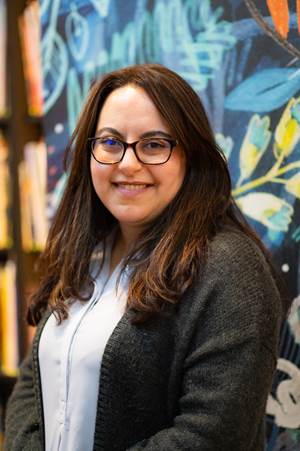 FS (pictured): Our schools need to provide a book-rich space and community that thrives on sharing and enjoying reading in a range of personal, social and learning contexts. A community in which children feel safe and supported along their journey towards becoming literate and feel empowered to develop their own reading preferences.
FS (pictured): Our schools need to provide a book-rich space and community that thrives on sharing and enjoying reading in a range of personal, social and learning contexts. A community in which children feel safe and supported along their journey towards becoming literate and feel empowered to develop their own reading preferences.
JB: It has to become absolutely central to the school ethos. Reading for Pleasure isn’t a timetabled 20-minute activity per week (which I have literally seen timetabled), it should run through the entire school and every member of the school community. Building a genuine Reading for Pleasure culture takes time, years, but when you see children reading in the playground, wandering the corridors talking about books, rushing in on a Monday morning to tell you about their new book, you’re on the way.
ST: It starts with becoming the fabric of the school, with the same status and importance as teaching maths. The Head Teacher being the driver for this culture. Professional development to support teachers to understand the why, the research and the how.
"All teachers should be readers. Apart from kindness, it is the most important thing that we teach."
TC: Build connections between readers and enable staff to share their reading lives and practices beyond school so that reading becomes part of the culture and ethos of the school, not just literary reading but normal, everyday, authentic reading for multiple purposes and pleasures in our lives.
PC: The school library needs to be well-stocked with a broad range of tempting titles. Class libraries should be used to promote authors and different types of reading. Ideally, the government should ringfence a tranche of money annually which must be spent on books. All teachers should be readers. Apart from kindness, it is the most important thing that we teach.





